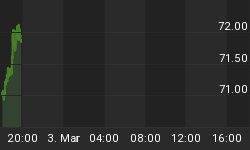At long last, a good portion of mainstream economists now concede that a 'double dip' recession is in the cards for the United States. To head off the pain, sixteen top economists addressed an open letter to the President urging him to "stimulate" the economy with a massive new round of government spending. We feel this is a recipe for driving a recession into a depression. However, there can be few doubts that such a move is being considered in the highest policy circles. Flush from victories in financial regulation and healthcare, the Administration may feel the conditions are ripe to push through another bold initiative.
If so, the United States may find itself in a very diminishing bloc of nations who fail to appreciate the magnitude of the global debt crisis. Its policies will become increasingly at odds with the drift of other world powers. Given American dependence on economic support from abroad, the risks of such isolation are significant.
On July 20th, UK Prime Minister David Cameron made his first official visit to the US. At a joint press conference that followed the private meeting, President Obama and Mr. Cameron papered over the fundamental economic disagreements that separate both governments.
At his core, Mr. Obama is in favor of spending his way out of the current recession. Most of the post-World War II occupants of the White House have followed the same course. Although the policy is short-sighted, it serves nevertheless to protect the competitive advantage of keeping the US dollar at the heart of the international monetary system. Spending expands global credit and creates the illusion of an invincible dollar, increasing the system's popularity at home and abroad. In a self-perpetuating feedback mechanism, the dollar's unique international position allows it to get away with even more spending.
Many international economists, bankers, and politicians now believe the US has overplayed its hand. At the recent G-20 meetings, America was at odds with the other major powers, who favored major cuts in government spending even if the result was a deeper short-term recession.
Part of this can be explained by currency movements. The Greek debt crisis threw doubt on even financially sound nations like Germany and ravaged the European common currency. Wishing to save the euro from the dustbin of history, the Germans and their allies within the EU have dug in. The sentiment even had an effect on the UK elections, which put the Conservatives into power with a mandate to strengthen the government's balance sheet and buck up the pound sterling.
On the other hand, Washington's profligacy has yet done little to dent confidence in the greenback. As a result, the Obama Administration senses no need for caution. This hubris will prove costly.
On paper, the United States appears to be the world's richest economy. However, she is also the largest debtor. If unfunded obligations are added to the $14.1 trillion official Treasury debt, the total would exceed $60 trillion, or 430% of 2009 GDP. If deficits and the disguised costs of Obamacare are included, the bill gets even larger. Despite this, the US government retains its treasured 'AAA' credit rating, at least in the eyes of disgraced Western ratings agencies. Meanwhile, according to the seemingly less-biased Dagong International Credit Rating (DICR) agency of China, the US has been downgraded to 'AA-'. Given its debt levels, even that rating may be overly generous.
According to the DICR, only Australia, Denmark, Luxembourg, Norway, New Zealand, and Switzerland retain their prized 'AAA' rating. Canada, China, Germany, and the Netherlands have been downgraded to 'AA+'. France, Japan, South Korea, and the UK join the US at the disturbing 'AA-'level. However, if Prime Minister Cameron delivers on his promised 25 per cent cut in government spending by 2015, the UK may regain a higher rating.
On the other hand, President Obama has bragged that Americans should "make no mistake, we are headed in the right direction." More disturbingly, his Administration has put forward the absurd notion that government spending achieves a 3:1 multiplier versus private spending (meaning every dollar of government spending will "pay for itself" by generating three dollars of private economic activity). Sensible economists suspect that the reverse is true: every dollar of government spending sucks between one and three dollars from the wealth-creating private sector.
It appears that America is now set on the sanguine 'progressive' path of stimulus and inflation. Our rejection of the other great powers' newfound maturity will push our recession into a depression, reduce our credit rating, and raise our already vast borrowing costs. Meanwhile, the rest of the world may not even notice we've fallen. Cool heads should plan accordingly.
For in-depth analysis of this and other investment topics, subscribe to The Global Investor, Peter Schiff's free newsletter. Click here for more information.
New Special Report Available: Peter Schiff's Five Favorite Gold & Silver Mining Stocks: Click here to download.
Click here for a description of Peter Schiff's best-selling, just-released economic fable, How an Economy Grows and Why It Crashes.















